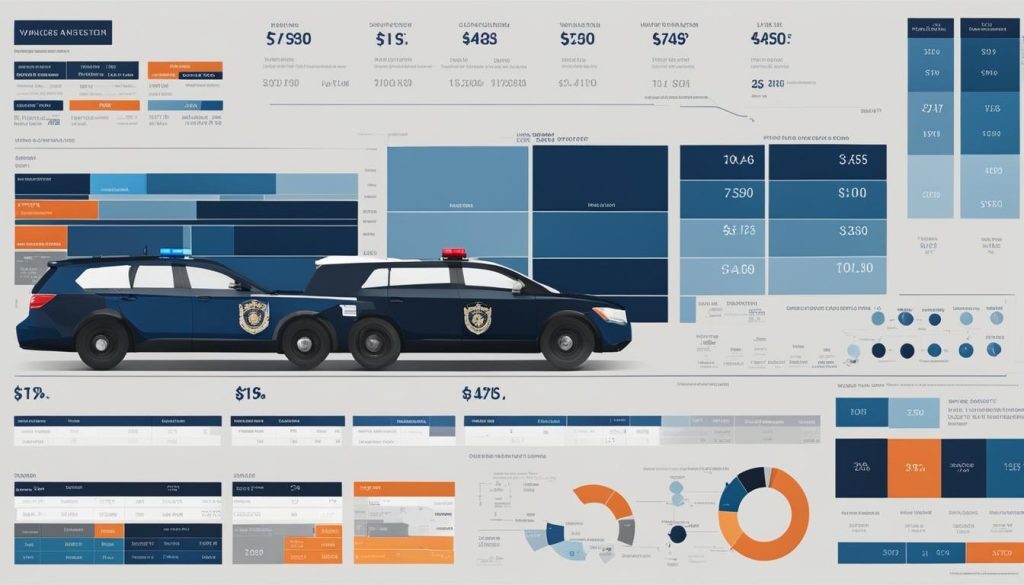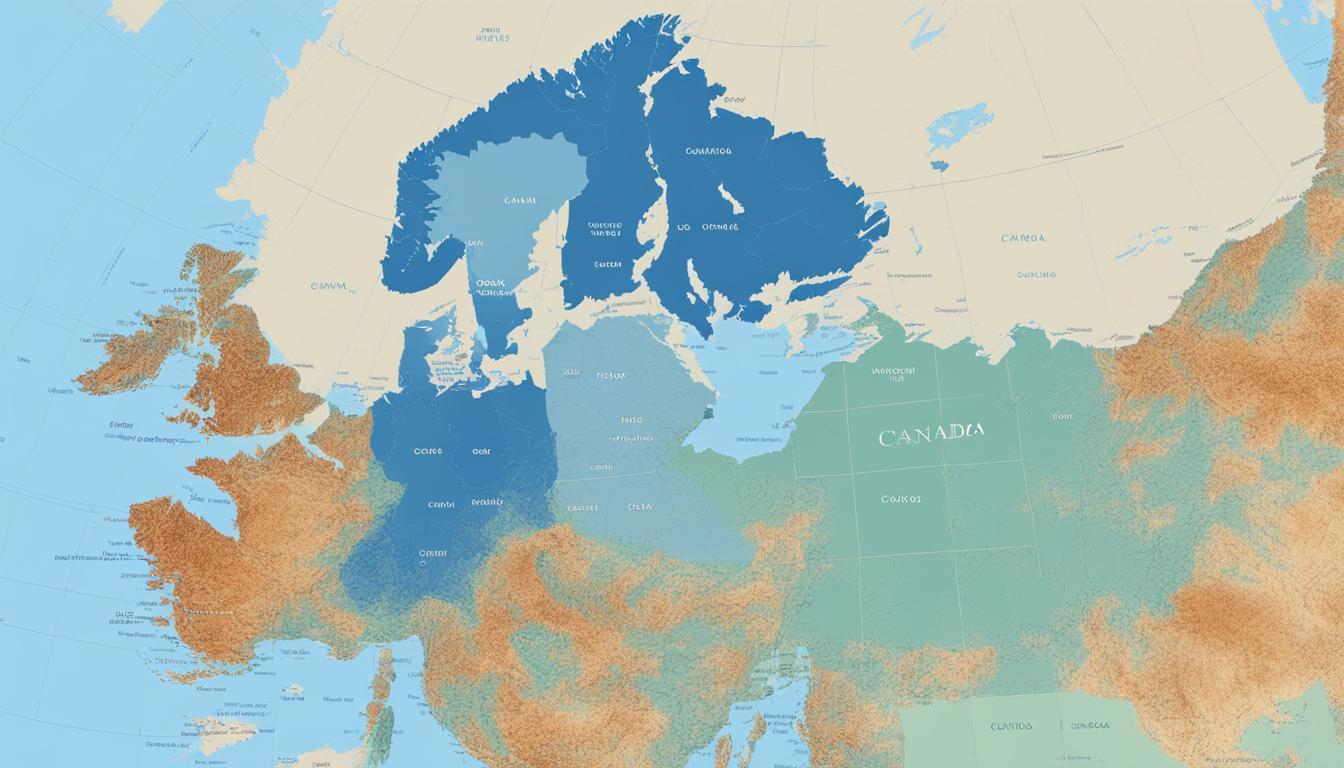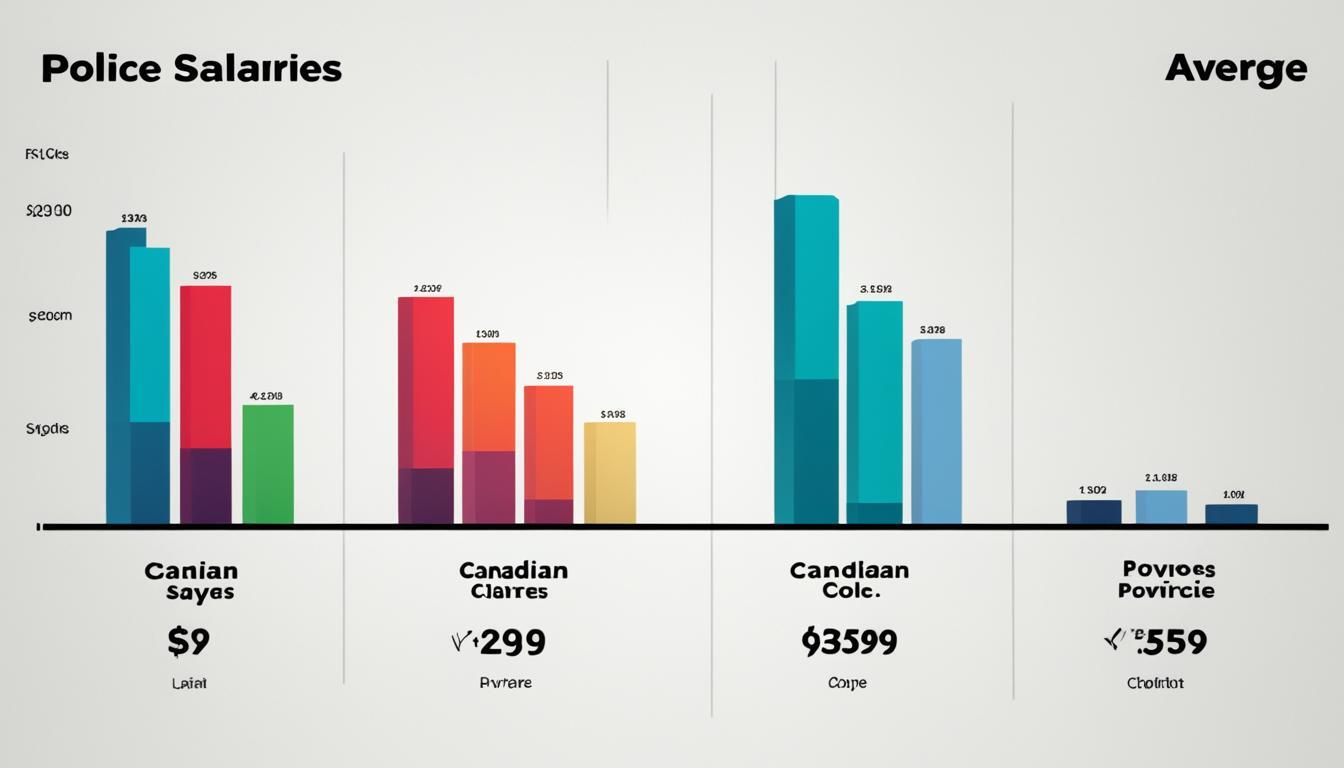Canadian Police Officer Salaries Revealed
As I dive into the world of Canadian law enforcement, one burning question arises: how much does a police officer make in Canada? In this article, we’ll uncover the details of police officer salaries and shed light on the income of Canadian police officers.
The Vancouver Police Union recently announced a groundbreaking tentative agreement that could make Vancouver’s police officers the highest paid in the country. This agreement not only includes higher wages for officers but also addresses concerns surrounding maternity and parental leave benefits. Such improvements are crucial for retaining talented officers in the face of a major labor crunch.
So, let’s take a deeper look at the factors influencing police officer salaries in Canada, specifically those in Vancouver.
Key Takeaways:
- Vancouver’s police officers are set to become the highest paid in Canada.
- The new agreement includes better maternity and parental leave benefits.
- Factors such as location, experience, and rank influence police officer salaries in Canada.
- Vancouver’s unionized police officers will see a retroactive increase in wages.
- The Vancouver Police Department’s budget for 2024 is expected to increase significantly.
Factors Influencing Police Officer Salaries in Canada
The salary range for police officers in Canada can vary depending on several factors that influence their compensation. These factors include:
- Location: The average pay for police officers in Canada is typically higher in major cities compared to smaller towns or rural areas. This is due to the higher cost of living and the increased demand for law enforcement in urban centers.
- Experience: Seniority and years of service can impact a police officer’s salary. As officers gain more experience, they often receive incremental pay raises and promotions.
- Rank: Higher-ranking officers, such as sergeants, lieutenants, and police chiefs, generally earn higher salaries compared to entry-level constables.
- Collective Agreements: Police officer salaries in Canada are often determined through collective bargaining agreements between police associations or unions and the governing bodies. These agreements outline the terms and conditions of employment, including salary scales.
The average pay for police officers in Canada varies depending on these influencing factors. In major cities like Vancouver, Toronto, and Montreal, where the cost of living is higher, police officers can expect higher salaries compared to smaller communities. Overtime opportunities during staff shortages and special events can also contribute to increased earnings for police officers.
Recruiting and retaining police officers has become increasingly challenging across Canada, with organizations competing for candidates from the same pool. To attract and retain talented individuals, competitive salaries and benefits packages are crucial.

Next section will examine the salary breakdown for police officers in Vancouver under the new tentative agreement reached between the Vancouver Police Union and employers.
In text must include SEO relevant keywords – average pay for police officers in Canada, law enforcement wages in Canada, police salary range in Canada.
Vancouver’s Police Officer Salary Breakdown
Under the new tentative agreement, Vancouver’s unionized police officers will see a retroactive increase in wages for the current year. A first-class constable’s annual pay will rise from just under $112,000 to $117,000 this year. Starting in 2024, their pay will further increase to approximately $122,000. This boost in salary aims to properly compensate officers and attract talented candidates to the city.
The agreement also includes improved benefits, such as an increase in the annual psychological injury benefit. Officers now have the ability to spend it on clinical counselors, which will help reduce wait times for treatment. These enhancements in compensation and benefits demonstrate the commitment of the Vancouver Police Department and the Vancouver Police Union to support the well-being of their officers.

Breakdown of Vancouver’s Police Officer Salary
| Year | Salary |
|---|---|
| 2022 | $117,000 |
| 2024 | $122,000 |
Vancouver Police Department’s Budget and Funding
The tentative agreement reached between the Vancouver Police Union and employers is part of the Vancouver Police Department’s 2024 operating budget. According to a draft of the civic budget, the city is expected to spend $440 million on policing services in 2024, a significant increase from previous years.
However, concerns have been raised about the sustainability of these yearly funding increases. Critics argue that investing in supportive housing, harm reduction, and mental health supports may be more effective in addressing the challenges faced by the city.
| Year | Police Department Budget (CAD) |
|---|---|
| 2018 | $350 million |
| 2019 | $380 million |
| 2020 | $400 million |
| 2021 | $420 million |
| 2022 | $440 million |
| 2023 | $440 million |
| 2024 | $440 million (projected) |
While the increased budget is intended to support the police department’s operations and initiatives, it is essential to consider alternative approaches that prioritize community well-being to address the underlying issues contributing to crime and safety concerns.
The Impact of Police Salaries on Recruiting and Public Safety
The competitive nature of recruiting police officers in Canada has led to higher salaries being used as a tool to attract and retain talent. The Vancouver Police Union acknowledges that recruiting is not just a local issue but a provincial and national one, as organizations seek candidates from the same pool.
By properly compensating officers and offering attractive benefits, cities like Vancouver aim to draw the brightest and best candidates to ensure public safety. A well-paid and motivated police force can have a positive impact on recruitment efforts, as it signals to potential candidates that their skills and dedication are valued.
However, it’s important to note that increasing the number of police officers does not necessarily reduce crime. While adequate staffing levels are crucial for effective law enforcement, public safety requires a multi-faceted approach that includes addressing social and economic factors that contribute to crime.
Ongoing debates surround the allocation of funding for law enforcement versus other social services. Critics argue that investing in programs focused on supportive housing, harm reduction, and mental health supports could have a more profound impact on reducing crime rates in the long term. Striking the right balance between police salaries and funding for other essential services remains a challenge that cities across Canada continue to grapple with.
- The Role of Police in Community Safety & Unity - October 6, 2025
- Quebec Police Officer Salary Insights 2023 - July 13, 2025
- Canada Arrest Protocol: What Police Say Upon Arrest - June 12, 2025




















Post Comment